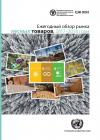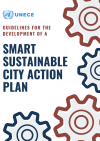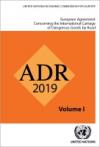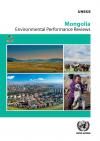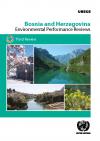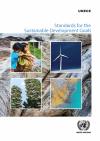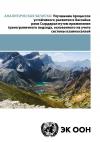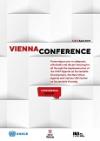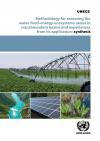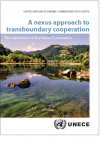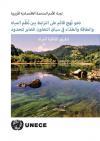Publications
Displaying Results 661 - 680 of 2807
- English
The Forest Products Annual Market Review 2017-2018 provides a comprehensive analysis of markets in the UNECE region and reports on the main market influences outside the UNECE region. It covers the range of products from the forest to the end-user: from roundwood and primary processed products to value-added and housing. Statistics-based chapters analyse the markets for wood raw materials,
- English
This guidance document provides the necessary structure, definitions, and tools to aid in the development of a Smart Sustainable City Action Plan. City Action Plans are developed to implement the recommendations of Smart Sustainable City Profiles. The Plans list the recommendations of the City Profiles and provide a full and strategic, and practical scheme to implement the recommendations.
- English
Adopted on 30 September 1957 in Geneva under the auspices of the United Nations Economic Commission for Europe (UNECE), the ADR entered into force on 29 January 1968. This authoritative Agreement is intended to increase the safety of international transport of dangerous goods by road. Its Annexes A and B contain the technical requirements for road transport, i.e. the conditions under
- English
The present publication contains the Environmental Performance Review of Mongolia. The report takes stock of progress made by the country in the management of its environment since 1987. It covers legal and policy frameworks, compliance assurance, greening the economy, environmental monitoring, public participation and education for sustainable development. Furthermore, the EPR addresses issues
- English
The present publication contains the third Environmental Performance Review of Bosnia and Herzegovina. The review takes stock of progress made by Bosnia and Herzegovina in the management of its environment since it was reviewed for the second time in 2010 and assesses the implementation of the recommendations made in the second review. It covers issues of specific importance to the country
- English
- English
This publication (ECE/TRADE/444) presents the results of an ongoing research on the practical experience of regulatory authorities, governments and local administrations, as well as regional groups of countries, in using standards towards sustainable development and the implementation of the 2030 Agenda.
The focus of the present volume
- Pусский
The Sendai Framework for Disaster Risk Reduction 2015–2030 was adopted at the Third United Nations World Conference on Disaster Risk Reduction (WCDRR) in Sendai, Japan, in March 2015 and was subsequently endorsed by the United Nations General Assembly. In order to support the process, a number of targeted Sendai Framework implementation guides are being developed to generate practical and
- Français
Le Cadre de Sendai pour la réduction des risques de catastrophe 2015-2030 a été adopté à la troisième Conférence mondiale des Nations Unies sur la réduction des risques de catastrophe, qui s’est tenue à Sendai (Japon) en mars 2015, et a ensuite été avalisé par l’Assemblée générale des Nations Unies. À l’appui de son exécution, un certain nombre de guides ciblés sont en cours d’élaboration
- English
The Sendai Framework for Disaster Risk Reduction 2015–2030 was adopted at the Third United Nations World Conference on Disaster Risk Reduction (WCDRR) in Sendai, Japan, in March 2015 and was subsequently endorsed by the United Nations General Assembly. In order to support the process, a number of targeted Sendai Framework implementation guides are being developed to generate practical and
- Pусский
This policy brief synthesizes the main findings and recommendations from the assessment of the water-food-energy-ecosystems nexus in the Syr Darya River Basin, shared by Kazakhstan, Kyrgyzstan, Tajikistan and Uzbekistan. The methodology employed was developed specifically for assessing the nexus in transboundary basins with multi-disciplinary expertise.
The assessment aimed to foster
- English
This policy brief synthesizes the main findings and recommendations from the assessment of the water-food-energy-ecosystems nexus in the Syr Darya River Basin, shared by Kazakhstan, Kyrgyzstan, Tajikistan and Uzbekistan. The methodology employed was developed specifically for assessing the nexus in transboundary basins with multi-disciplinary expertise.
The assessment aimed to foster
- English
This is the full report of the 2018 Vienna Conference on Sustainable Housing "Promoting access to adequate, affordable and decent housing for all through the implementation of the 2030 Agenda on Sustainable Development, the New urban Agenda and Geneva UN Charter on Sustainable Housing", organized by UNECE and the City of Vienna on 12 and 13 April 2018 in Vienna, Austria.
- Spanish(西班牙语)
This Synthesis publication covers lessons on interlinkages, trade-offs and benefits in managing water, energy and land/agriculture, as well as on protecting the environment derived from several transboundary river basins in Southern Europe, the Caucasus and Central Asia, and one aquifer system in North Africa. These lessons are the result of the collective experience of Parties to the
- English
This Synthesis publication covers lessons on interlinkages, trade-offs and benefits in managing water, energy and land/agriculture, as well as on protecting the environment derived from several transboundary river basins in Southern Europe, the Caucasus and Central Asia, and one aquifer system in North Africa. These lessons are the result of the collective experience of Parties to the Convention
- العربية
This Synthesis publication covers lessons on interlinkages, trade-offs and benefits in managing water, energy and land/agriculture, as well as on protecting the environment derived from several transboundary river basins in Southern Europe, the Caucasus and Central Asia, and one aquifer system in North Africa. These lessons are the result of the collective experience of Parties to the
- Spanish(西班牙语)
Understanding the interactions between water, food, energy and water-related ecosystems in river basins can be vital in ensuring different and often competing needs are met in a coherent manner. This is even more important in transboundary basins, where identifying intersectoral synergies and mutually beneficial solutions can help in reducing trade-offs and potential conflicts, not only across
- English
Understanding the interactions between water, food, energy and water-related ecosystems in river basins can be vital in ensuring different and often competing needs are met in a coherent manner. This is even more important in transboundary basins, where identifying intersectoral synergies and mutually beneficial solutions can help in reducing trade-offs and potential conflicts, not only across
- العربية
Understanding the interactions between water, food, energy and water-related ecosystems in river basins can be vital in ensuring different and often competing needs are met in a coherent manner. This is even more important in transboundary basins, where identifying intersectoral synergies and mutually beneficial solutions can help in reducing trade-offs and potential conflicts, not only across
- Pусский
This Synthesis publication covers lessons on interlinkages, trade-offs and benefits in managing water, energy and land/agriculture, as well as on protecting the environment derived from several transboundary river basins in Southern Europe, the Caucasus and Central Asia, and one aquifer system in North Africa. These lessons are the result of the collective experience of Parties to the


